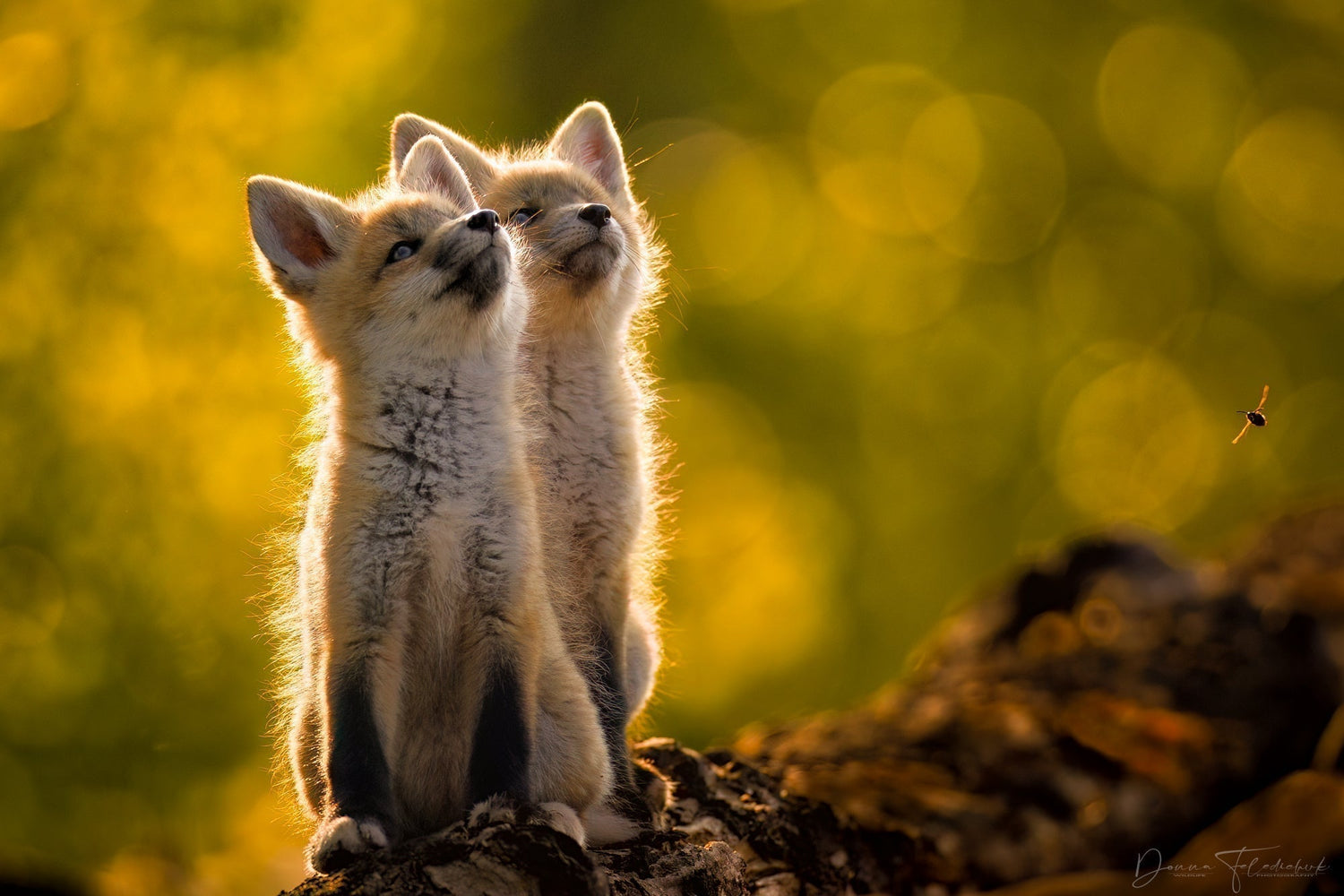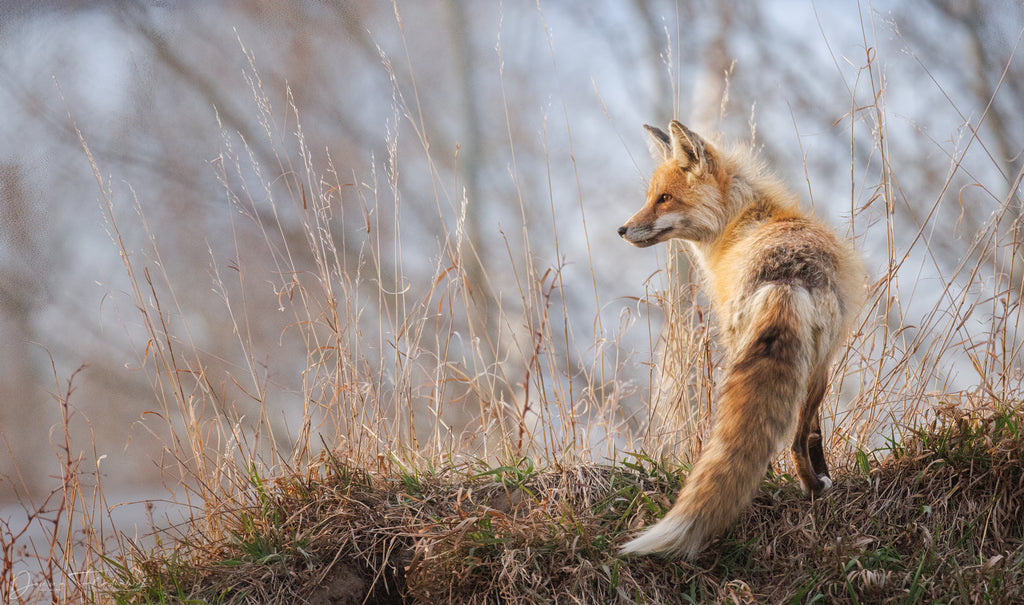
The Stages of Growth as a Wildlife Photographer
A stage 5 photo, noticing the gold colors in the background making a lovely bokeh, the backlighting and the unison of the pose of the two foxes. The added touch is the dragonfly on the right.
I believe as you progress in your journey of wildlife photography, a series of distinct stages emerge, marking the evolution of skills and vision. I mentioned this on one of my social media pages and it generated a lot of comments and conversation. Through my observations, I have delineated five pivotal stages that encapsulate this journey:
STAGE 1: Discovery and Capture
In this budding phase, the primary objective is the documentation of a coveted subject. Whether it be the elusive owl, the majestic grizzly, or the regal lion, the focus lies solely on getting an image, irrespective of technical finesse. You operate on pure excitement, engaging in a point-and-shoot approach without consideration for nuances such as light, composition, or background. You are just happy to have captured an in-focus image of your subject.

A stage 1 photo. The background does not enhance the image, there are shadows because the sun is too high in the sky making the light harsh, but the subject is in focus.
STAGE 2: Pursuit of Soft Light
Transitioning from getting a photo of the subject, you now endeavour to capture your subject in soft, flattering light. Conscious of time and the sun's positioning, efforts are directed toward mitigating harsh shadows, underexposure, or overexposure. The goal is to achieve a balance wherein the subject is illuminated gracefully, devoid of distracting lighting artifacts.

A stage 2 photo. The fox is in focus and due to the clouds there a no shadows or harsh light but a soft light that is good for photography, However, there is no unique behaviour and the background does nothing to enhance the subject.
STAGE 3: Artistic Composition and Background Integration
Evolving further, the emphasis shifts towards crafting images that are more than mere representation. Here, the you try to place the subject with an aesthetically pleasing backdrop, striving for harmonious composition and engaging visual appeal. You are looking to position yourself in the field to maximize the effect of the background while being conscientious of the light, you are moving around a bit acutely aware of how the background changes as you move. Factors such as background elements, color palettes, and subject positioning are all considered, culminating in images that resonate on social media platforms.

A stage 3 photo The moose is at eye level, the lighting is good and the background blurs out so the focus remains on the subject.
STAGE 4: Expression of Unique Behavior
Building upon the foundation of stage 3, the focus now expands to encapsulate moments of extraordinary or unique behavior exhibited by the subject. It surpasses the realm of standard wildlife photography, and becomes storytelling that evokes emotion. Whether capturing a charging bear, a tender interaction between a bear and its cub, or the precise moment of attack of a hunting eagle, these images all have great lighting, and great composition, are at eye level with an awesome background, and epitomize the fusion of technical prowess with narrative depth.

A stage 4 photo. It has good lighting, there is great action and behaviour in the photo, the background is not competing with the subject and the bear is nice and sharp in great focus and at eye level.
STAGE 5: Attainment of Extraordinary Lighting and Moment
At the pinnacle of the journey lies stage 5, where photography transcends the ordinary to embrace the extraordinary. In these moments the award winners are created. You seek out moments of unparalleled lighting—be it the ethereal hues of dawn or the luminescent glow of dusk—that elevate the image into a realm of visual transcendence. Combined with impeccable composition, background, and subject behavior, these images stand as visual testimonies of artistic vision and technical mastery, garnering accolades and admiration alike.

A stage 5 photo. The owl is in golden light coming from the side making the feathers of the owl backlight. Getting backlight great gray owls in flight is so difficult because it is usually very low light making sharp images hard to get as you generally have to drop the shutter speed.
It's important to note that one seldom operates exclusively within a single stage, except when one is first starting in wildlife photography. Instead, progression entails a dynamic interplay between stages, with most endeavors yielding results at stages 3 and 4. Although these are not the award winners these captures make good photos for stock photography and on occasion a nice print if you are looking to sell your work. However, the pursuit of stage 5 imagery remains the pinnacle of excellence, requiring unwavering commitment, foresight, and resolve to capture the sublime. The top photographers though are always trying to create the stage 5 photos, They are thinking about them and planning them. They are considering how to get the best background, the best light angles, and where to encounter the species. When I am in the field I always giving myself the best possibility to get that photo, I make sure I am out at the best time of the day before the sun rises and when it sets. That means getting up at 4 am, getting to a special location in the field, and waiting. It means putting in the work, time, and effort but if you work hard you can get those photos that can make a career.


